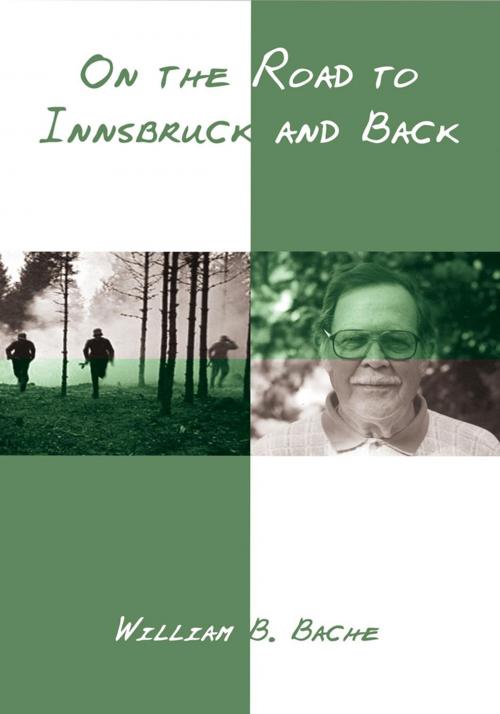On the Road to Innsbruck and Back
Nonfiction, History, Military, Fiction & Literature, Short Stories, Biography & Memoir| Author: | William B. Bache | ISBN: | 9780759616554 |
| Publisher: | AuthorHouse | Publication: | January 23, 2003 |
| Imprint: | AuthorHouse | Language: | English |
| Author: | William B. Bache |
| ISBN: | 9780759616554 |
| Publisher: | AuthorHouse |
| Publication: | January 23, 2003 |
| Imprint: | AuthorHouse |
| Language: | English |
On the Road to Innsbruck and Back chronicles the unheralded experience of a common soldier during World War II, from his enlistment in the army in 1942 to his discharge from an army hospital in 1946. It is the only war memoir to present itself in the form of short stories, sixteen in all. The first two stories ("Living with Violence" and "Losing It") deal with pre-combat events. The next ten stories describe combat from the clarifying perspective of a member of a regimental Intelligence and Reconnaissance platoon. The final four stories are concerned with the soldiers hospital experience.
"The Hero Syndrome," like the title story, is retrospectively concerned with a single memorable event. The other eight combat stories are concerned with less remarkable, single events ("Gathering Intelligence" and "Off Limits") or with thematic matters ("Under Fire" and "Winding Down"). The style is clear; the tone is ironic; the hallmark is authenticity. On the Road reveals what happens to a young man who has been in combat and who has been seriously wounded. The historian Paul Fussell has praised the memoir for "its clear critical intelligence as well as its sensitivity and wisdom."
On the Road to Innsbruck and Back chronicles the unheralded experience of a common soldier during World War II, from his enlistment in the army in 1942 to his discharge from an army hospital in 1946. It is the only war memoir to present itself in the form of short stories, sixteen in all. The first two stories ("Living with Violence" and "Losing It") deal with pre-combat events. The next ten stories describe combat from the clarifying perspective of a member of a regimental Intelligence and Reconnaissance platoon. The final four stories are concerned with the soldiers hospital experience.
"The Hero Syndrome," like the title story, is retrospectively concerned with a single memorable event. The other eight combat stories are concerned with less remarkable, single events ("Gathering Intelligence" and "Off Limits") or with thematic matters ("Under Fire" and "Winding Down"). The style is clear; the tone is ironic; the hallmark is authenticity. On the Road reveals what happens to a young man who has been in combat and who has been seriously wounded. The historian Paul Fussell has praised the memoir for "its clear critical intelligence as well as its sensitivity and wisdom."















